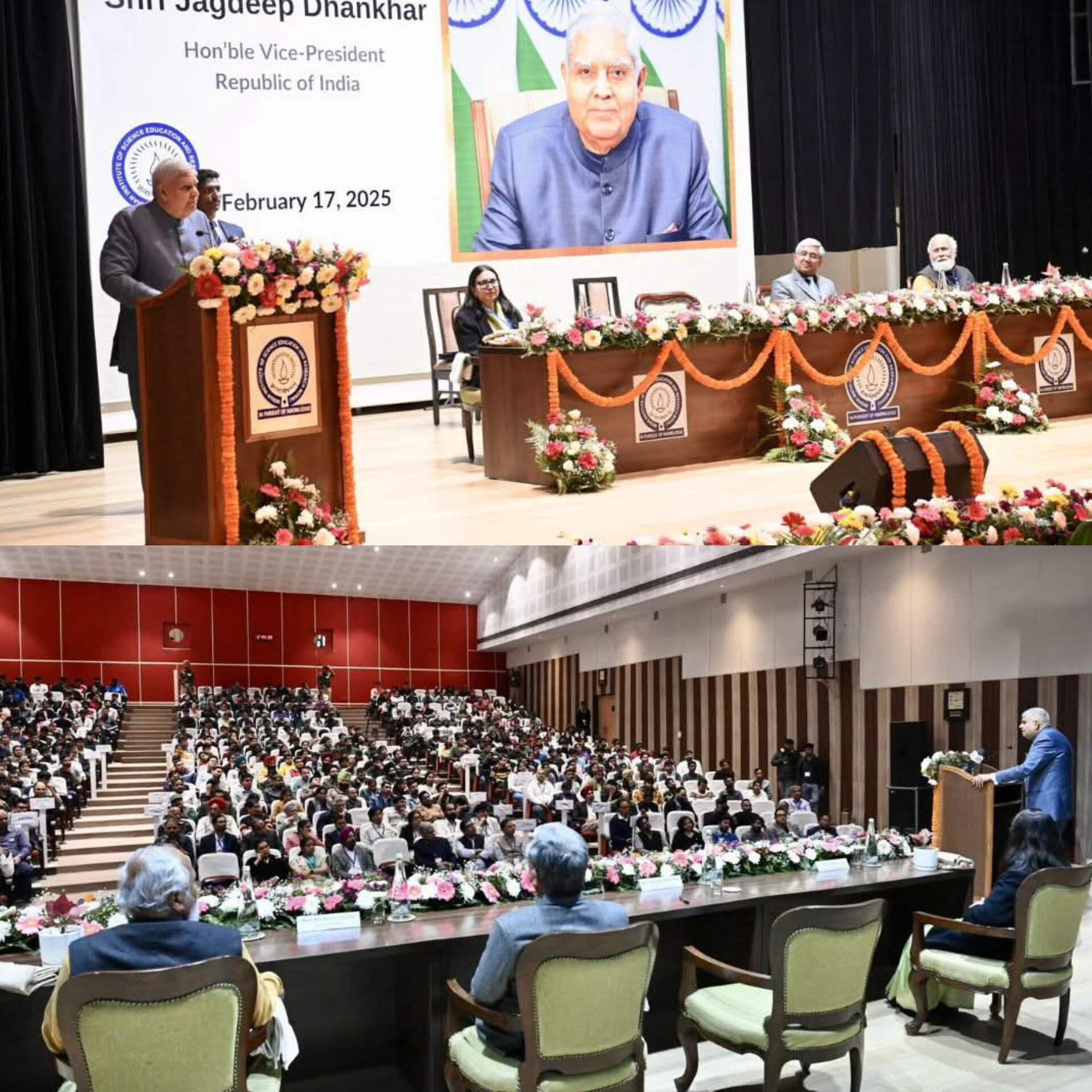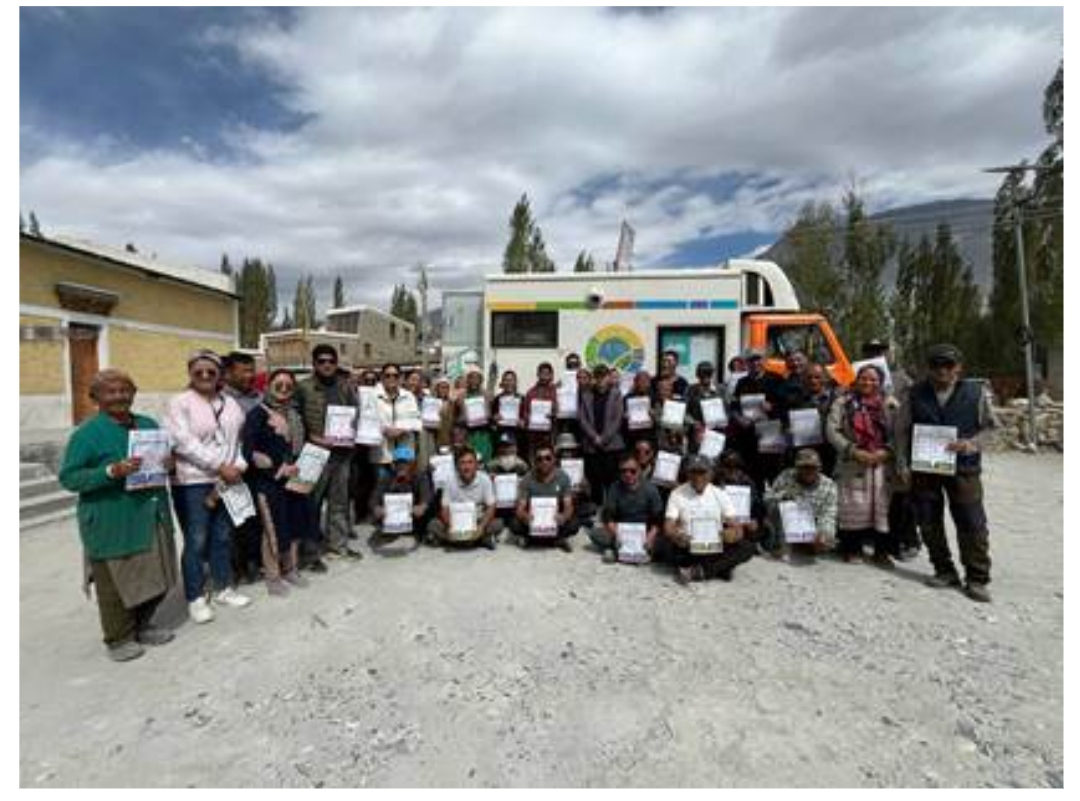Vice President Urges IISER Students to Lead India’s Scientific Renaissance at Mohali Address.
Mohali:
In a stirring address to the students and faculty of the Indian Institute of Science Education and Research (IISER), Mohali, Vice President of India, Jagdeep Dhankhar, emphasized the critical role of young minds and scientific research in India’s ongoing rise as a global leader in innovation and technology. Speaking to an audience of educators and aspiring scientists, the Vice President reflected on the nation’s remarkable transformation over the past few decades, outlining the strides India has made in infrastructure, digitalization, and economic growth.
Dhankhar began his address with a note of gratitude, acknowledging the leadership of Professor Anil Kumar Tripathi, Director of IISER Mohali, and congratulating Professor Renu Vig, the first woman Vice-Chancellor of Punjab University, for her groundbreaking achievements. His speech also highlighted the growing significance of India’s educational institutions, which, he stated, play a crucial role in shaping the future of the nation.
Drawing from India’s rich legacy of knowledge, Dhankhar spoke with pride about the nation’s ancient contributions to science and mathematics, citing figures such as Aryabhatta and Brahmagupta. He stressed the importance of research as the foundation of India’s economic and global stature, stating that a nation’s scientific prowess is directly linked to its strategic and economic power.
“We are at a critical juncture,” he noted, acknowledging how far the country has come in the face of challenges. He recalled the economic struggles of the past, contrasting them with India’s current position as one of the world’s largest economies. The Vice President highlighted the rapid progress in sectors such as banking, sanitation, and electricity, noting that over 550 million people have benefited from banking inclusion and more than 100 million households now have access to modern facilities like toilets and cooking gas.
Dhankhar emphasized the transformative power of technology and its role in India’s unprecedented growth, including advancements in artificial intelligence, blockchain, and quantum computing. He pointed out the significant rise of India’s direct digital transactions, which are now four times those of major economies like the USA, UK, and France combined.
Addressing the younger generation, Dhankhar urged them to embrace the opportunities created by emerging technologies. He encouraged students to think beyond traditional career paths, citing the rise of startups and unicorns as a prime example of how innovation is reshaping the job market. He also expressed his belief in the potential of IISER students to drive India’s future scientific breakthroughs, particularly in fields like space research, green hydrogen, and quantum computing.
The Vice President reflected on India’s transformation from a nation once dependent on foreign loans to one with a foreign exchange reserve 700 times greater than in the past. He called for an increased focus on research and innovation, urging corporate entities to invest more liberally in research and development. Highlighting the government’s recent efforts to boost funding for research, Dhankhar pointed out that corporate investment in research had risen by 50% over the past five years but stressed that more substantial contributions were needed.
Concluding his address, Dhankhar urged students to take inspiration from the words of Swami Vivekananda: “Arise, awake, and stop not till the goal is achieved.” He reminded them that failure is an inherent part of the journey to success, citing examples like the Chandrayaan-2 mission, which despite its initial setbacks, laid the foundation for the success of Chandrayaan-3.
In his final message, Dhankhar called on the youth to remain committed to research and innovation, ensuring that India continues its march toward becoming a global leader in science and technology. He ended with a reminder of the nation’s guiding principle, “Vasudhaiva Kutumbakam”—One Earth, One Family, One Future—encouraging IISER students to contribute to both India’s scientific renaissance and the broader global community.



